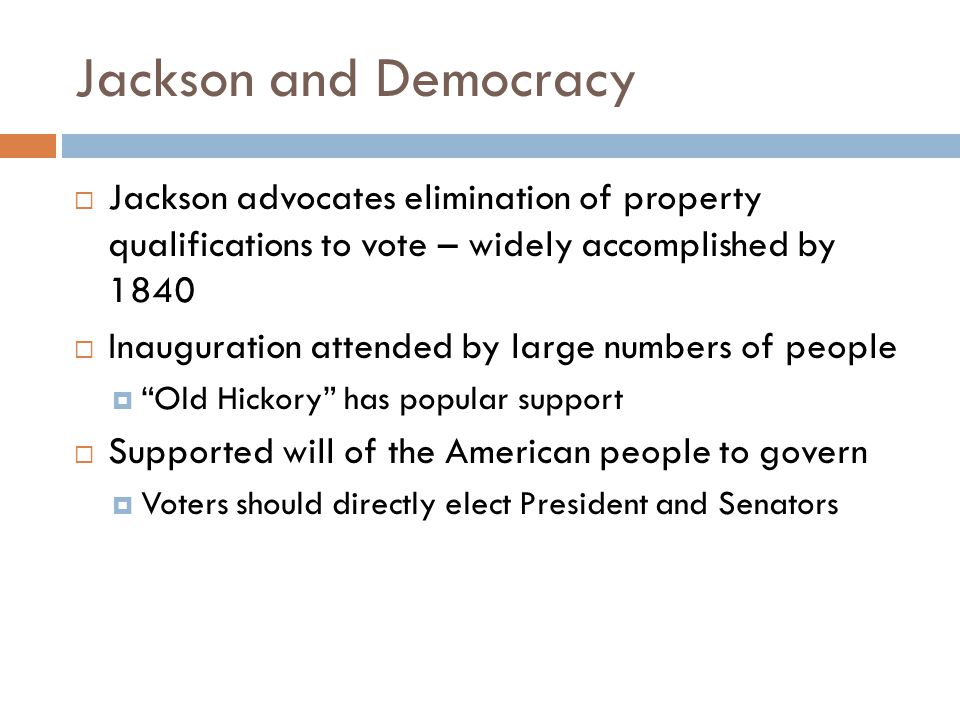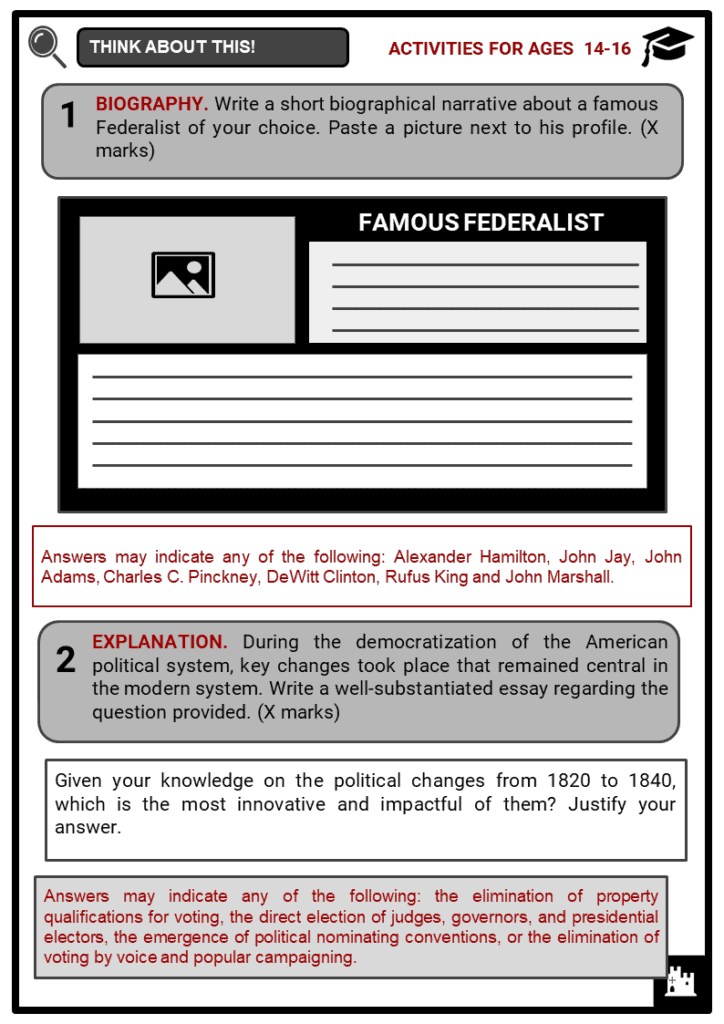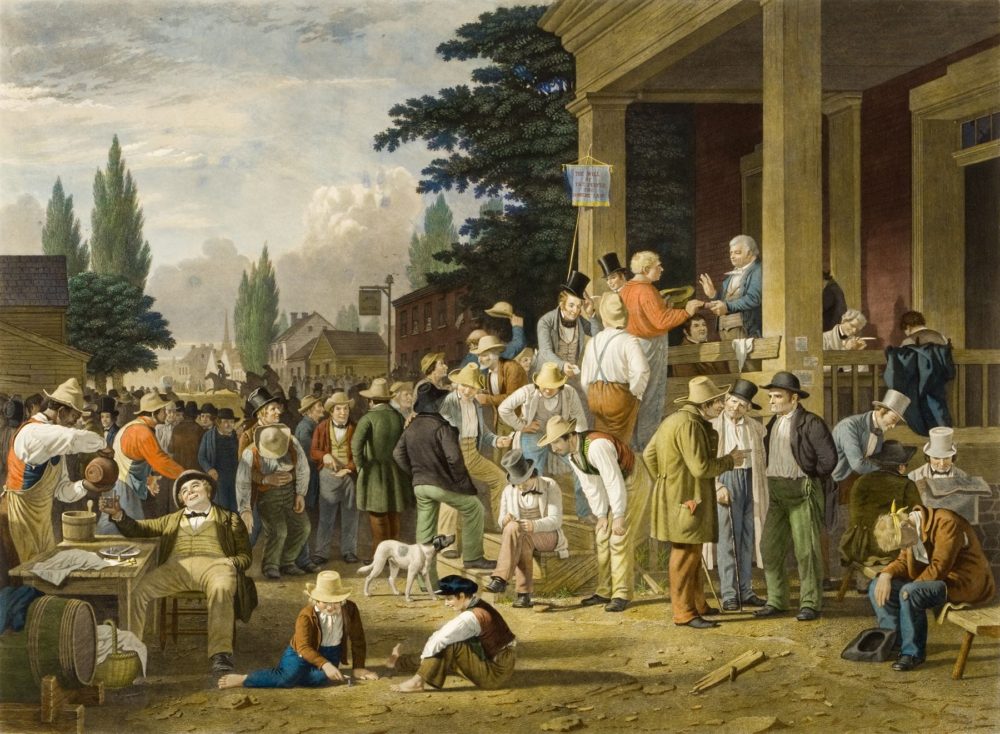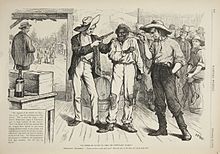Elimination Of Property Qualifications For Voting
How did Andrew Jackson treat the federal bureaucracy. The elimination of property qualifications for voting the direct election of judges governors and presidential electors the emergence of political nominating conventions the elimination of voting by voice and popular campaigning.
 The Era Of Good Feelings And Jacksonian Democracy Ppt Video Online Download
The Era Of Good Feelings And Jacksonian Democracy Ppt Video Online Download
The most innovative of these changes was the abolition of property qualifications for voting and householding.
Elimination of property qualifications for voting. However New Jersey was the first to remove property and financial qualifications to vote. Direct methods of selecting presidential electors county officials state judges and governors replaced indirect methods. Property to entitle them to vote for governor 25 That property requirement applied to all potential voters regardless of race.
In most states property qualifications still limited the vote to white males owning as least a fifty-acre plot of land. However some states allowed also Black males to vote and New Jersey also included unmarried and widowed women regardless of color. Jacksons supporters saw themselves as overthrowing the old aristocratic order in favor of rule by the common man.
--GENERAL BELIEF BY FOUNDERS THAT ONLY MEN WHO HAD PROPERTY HAD A SUFFICIENT STAKE IN SOCIETY TO EXERCISE VOTE IN A RESPONSIBLE FASHION. The most significant political innovation of the early nineteenth century was the abolition of property qualifications for voting and officeholding. Appellant a 31-year-old college-educated bachelor who lived with his parents was denied the right to vote for the school board.
Jackson was the first President who was not either from Virginia or. Black people and white people were treated equally in theory. Not only that voters could now cast their opinion for more offices.
Winning approval of the Force bill. Previously governors and presidential electors had usually been selected by state. The Expansion of Voting Rights.
It began in the American Revolution but culminated in the early nineteenth century. While some states constitutions retained property qualifications for voting and office holding the most democratic new constitutions moved toward the idea of voting as an entitlement rather than a privilege though they generally stopped short of universal suffrage even for free men. The elimination of property qualifications the use of the spoils system and the introduction of new campaign methods during the Presidency of Andrew Jackson were considered democratic reforms because they--.
One basis of political democracy in this period was the challenge to property qualifications for voting. Voting by voice was eliminated. 26 Nonetheless the property qualifications bore more heavily upon 19.
Guaranteed women and free blacks the right to vote in federal elections. By 1840 more than 90 percent of adult white men possessed the right to vote. The Constitution of the United States grants the states the power to set voting requirements.
As property requirements for voting were abolished economic status disappeared as a foundation for citizenship. In 1966 the Supreme Court extended this prohibition to state elections when it held in Harper v. The Twenty-fourth Amendment to the Constitution of the United States which took effect on 23 January 1964 outlawed property qualifications for voting in federal elections by abolishing all poll or other taxes as requirements for voting.
Property 2 be the spouse of one who owns or leases real property or 3 be the parent or guardian of a child in school. The elimination of property qualifications for voting for voting in most states. The elimination of the influence of the privileged.
Elimination of property qualifications for voting. Encouraged state officials to grant voting rights to new immigrants. He distributed government jobs to loyal party members.
--OVER TIME THE STATES THEMSELVES REMOVED PROPERTY. He challenged the constitutionality of the voting. In response to South Carolinas vote to nullify the tariffs of 1828 and 1832 President Jackson took all of the following actions EXCEPT a.
After the Revolution no new state required property ownership to vote and in older states constitutional conventions in the 1820s and 1830s abolished property qualifications partly because the growing number of wage. A victory in the war against Great Britain an expansion of the power of the Supreme Court a constitutional amendment granting women the vote an elimination of property qualifications in order to vote. Property qualifications for voting and office-holding were repealed.
This voting limitation upheld Thomas Jeffersons commitment to a rural republicanism that rested on the widespread farm ownership of relatively independent adult males. Hard times resulting from the panic of 1819 led many people to demand an end to property restrictions on voting and officeholding. Elimination of Property Qualifications 1800-1840 4 --CONSTITUTION LEFT IT TO THE STATES TO DETERMINE VOTER QUALIFICATION.
Andrew Jackson opposed the Second Bank of the United States because he. The period from 1820 to 1840 was a time of important political developments. Jacksons victory was made possible in part by the elimination of property qualifications for voting in many states.
Generally states limited this right to property-owning or tax-paying white males about 6 of the population. Pennsylvanias Constitution in 1776 opened the voting franchise for all men who had paid taxes which was less restrictive than the requirement that voters own property.
Http Www Gmsdk12 Org Downloads Ch6 20notes 20wkst 20answers Pdf
 American Politics In The 1820s Facts Worksheets Policies History
American Politics In The 1820s Facts Worksheets Policies History
Property Requirements For Voting In Virginia 1670 1850
 Poll Tax Encyclopedia Virginia
Poll Tax Encyclopedia Virginia
 Black Suffrage In The United States Wikipedia
Black Suffrage In The United States Wikipedia
Interpretation The Twenty Fourth Amendment The National Constitution Center
5 Ensuring The Integrity Of Elections Securing The Vote Protecting American Democracy The National Academies Press
 Expanding Democracy Article Khan Academy
Expanding Democracy Article Khan Academy
Property Requirements For Voting In Virginia 1670 1850
White Manhood Suffrage National Museum Of American History
 Poll Tax Encyclopedia Virginia
Poll Tax Encyclopedia Virginia
 Poll Tax Definition History Facts Britannica
Poll Tax Definition History Facts Britannica
Interpretation Article I Section 2 The National Constitution Center
Property Requirements For Voting In Virginia 1670 1850
 1835 Constitutional Convention Ncpedia
1835 Constitutional Convention Ncpedia
 Black Suffrage In The United States Wikipedia
Black Suffrage In The United States Wikipedia
Labels: property, qualifications



0 Comments:
Post a Comment
Subscribe to Post Comments [Atom]
<< Home